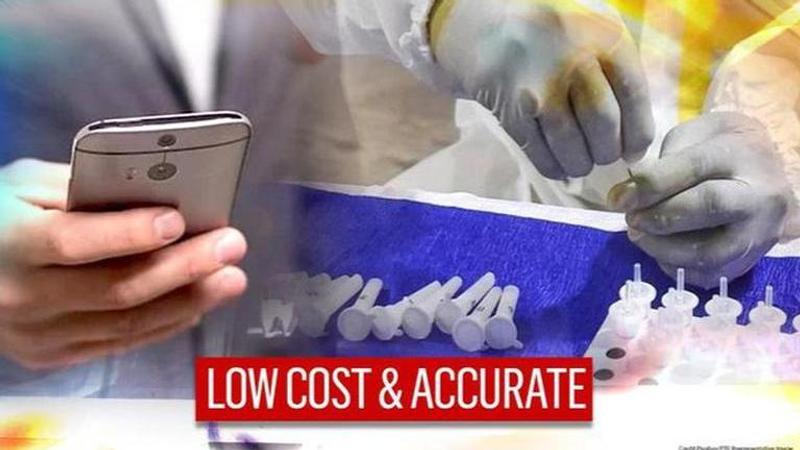Published 15:42 IST, October 11th 2020
Rapid COVID-19 detection possible with CRISPR-based mobile phone diagnostic test: Study
The phone-based CRISPR testing accurately detects a set of positive clinical samples in under five minutes, which means it can be used for fast screening

Ever since the emergence of the COVID-19 pandemic late last year it has become a major challenge for the world, partly because of the lack of resources to track the virus carrier. However, scientists have now developed a low-cost, portable, and accurate mobile phone-based testing method that can detect SARS-CoV-2 in about five minutes. According to a study published in the journal medRxiv, the testing method accurately detects a set of positive clinical samples in under five minutes.
Fast screening possible
The new mobile phone-based testing method was developed by researchers using CRISPR gene-editing technology. The research was led by 2020 Nobel laureate for chemistry Jennifer Doudna, who was awarded the prestigious prize along with Emmanuelle Charpentier for the development of a method for genome editing. The new mobile-based method has the potential to enable a fast, accurate, portable, and low-cost option for COVID-19 screening.
"A recent national survey of over 19,000 respondents showed that the average wait time for nasal swab-based qPCR test results was 4.1 days, with 31% of tests taking more than 4 days and 10% of tests taking 10 days or more (Lazer et al., 2020). The national backlog in processing these laboratory-based tests clearly illustrates the need for rapid, point-of-care tests that can reliably detect SARS-CoV-2 RNA," the study said.
The new mobile-based testing has the potential to replace the current reverse transcription-polymerase chain reaction (RT-PCR) method, which takes a minimum of five to six hours to produce results. The new method can be used in both developed and developing countries for testing of the general public, school-going children, among others, while the old RT-PCR method should be reserved for health care staff, frontline workers, where close to 100 percent accuracy is essential.
Updated 15:42 IST, October 11th 2020



